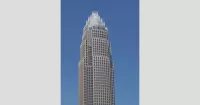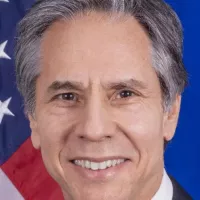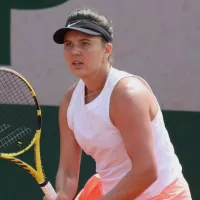Qatar is a country located on the Qatar Peninsula in West Asia, sharing a land border with Saudi Arabia. Its capital is Doha, where most of the population resides. The country is mainly composed of flat, low-lying desert and is surrounded by the Persian Gulf. The Gulf of Bahrain separates Qatar from Bahrain.
1970: First census
At the time of the first census held in 1970, the population was 111,133.
1970: First short story anthology
Due to increased formal education, 1970 saw the introduction of Qatar's first short story anthology.
1970: TV broadcasting started
TV broadcasting was started in Qatar in 1970.
1982: Economic downturn begins
In 1982, Qatar's economy began facing a downturn, which would last until 1989, due to OPEC quotas and declining oil prices.
1989: Economic improvements
By 1989, Qatar saw economic improvements with profits around QR420 million and increased production in sectors like ethylene and sulfur, following a downturn that began in 1982.
1991: North Field gas development completion
In 1991, Qatar's economy was boosted by the completion of Phase I of the $1.5-billion North Field gas development.
1993: First locally authored novels published
In 1993, the first locally authored novels were published in Qatar.
1996: Al Jazeera launched
In 1996, Al Jazeera initially launched as an Arabic news and current affairs satellite TV channel headquartered in Doha.
1996: Qatargas project begins exporting liquefied natural gas
In 1996, the Qatargas project began exporting liquefied natural gas to Japan.
2002: Doha Cultural Festival begins
In 2002, the Qatari Ministry of Culture, Arts and Heritage started the Doha Cultural Festival to spread Qatari culture.
2006: Healthcare Resources
In 2006, Qatar had 25 beds, 27.6 doctors, and 73.8 nurses per 10,000 people.
2006: Physicians and nurses per capita
In 2006, there were 23.12 physicians and 61.81 nurses per 10,000 inhabitants in Qatar.
2008: Launch of National Vision 2030
In 2008, Qatar launched its National Vision 2030, highlighting environmental development as a main goal and pledging to develop sustainable alternatives to oil-based energy.
2008: Museum of Islamic Art opens
In 2008, the Museum of Islamic Art opened and is regarded as one of the best museums in the region.
2008: Permission to build churches
Since 2008, Christians have been allowed to build churches on land donated by the government.
2010: Takahashi Murakami exhibition in Versailles
In 2010, Qatar Museums Authority sponsored a major exhibition by Takahashi Murakami in Versailles.
2010: Healthcare investment
In 2010, Qatar invested $2.6 billion in healthcare.
2010: Religious demographics
In 2010, Qatar's population was 67.7% Muslim, 13.8% Christian, 13.8% Hindu, and 3.1% Buddhist.
2010: Construction of Hamad Port begins
In 2010, construction of Hamad Port began south of Doha in the Umm Al Houl area.
2010: World Cup bid
Since the successful World Cup bid of 2010, $220 billion has been spent on infrastructure to boost the hotel and hospitality markets.
2011: Decrease in beds and increase in doctors
In 2011, the number of beds in Qatar decreased to 12 per 10,000 people, whereas the number of doctors increased to 28 per 10,000 people.
2012: Damien Hirst exhibition in London
In 2012, Qatar Museums Authority sponsored a major exhibition by Damien Hirst in London.
January 2013: Population estimate
In January 2013, the Qatar Statistics Authority estimated the population at 1,903,447, with a skewed gender balance due to a large influx of male laborers.
2013: Network Readiness Index ranking
In 2013, Qatar ranked number 23 overall in the World Economic Forum's Network Readiness Index (NRI).
2014: Healthcare investment
In 2014, Qatar invested $4.7 billion in healthcare.
2014: Cybercrime Prevention Law passed
In 2014, Qatar passed a Cybercrime Prevention Law, which is said to restrict press freedom.
2014: Network Readiness Index ranking
In 2014, Qatar ranked number 23 overall in the World Economic Forum's Network Readiness Index (NRI).
2014: Life expectancy
In 2014, the life expectancy at birth in Qatar was 82.08 years, making it the highest in the Middle East.
2014: Freedom of the Press Report
Qatar's media was classified as "not free" in the 2014 Freedom of the Press report by Freedom House.
December 2016: Hamad Port becomes operational
In December 2016, Hamad Port became operational, capable of handling up to 7.8 million tonnes of products annually.
2017: QSTec commissions polysillicon plant in Ras Laffan
In 2017, QSTec commissioned its polysillicon plant in Ras Laffan, with a capacity of 1.1 MW of solar power.
2017: South Asian population in Qatar
In 2017, South Asians represented over 1.5 million people (60%) in Qatar, with Indians being the largest community numbering 650,000.
2017: International tourists visit Qatar
In 2017, more than 2.3 million international tourists visited Qatar.
2017: Qatar population demographics
In early 2017, the population of Qatar was 2.6 million, with only 313,000 (12%) being Qatari citizens and the remaining 2.3 million being expatriates.
2019: Qatar's market climate ranking
Qatar was placed in the top eight in market climate in the Middle East by the Travel & Tourism Competitiveness Survey 2019 of the World Economic Forum.
2020: Projected revenue from foreign travelers
Gulf News predicted that Qatar would earn 11 billion and 900 million dollars from attracting foreign travelers by 2020.
2021: Increased tourism
In 2021, The tourism sector continues to witness a strong recovery, with a 19% increase in the number of international visitors compared to the first half of 2022.
2022: HIA Phase 1 Expansion
In 2022, Hamad International Airport's (HIA) first phase expansion introduced a new terminal, hotel, and the ORCHARD tropical garden.
2022: International visitors in Qatar
In the first half of 2022, Qatar saw more than 729,000 international visitors, marking a 19% increase compared to the full year of 2021.
2030: Goal of 20% energy from solar power
By 2030, Qatar has set the goal of attaining 20% of its energy from solar power.
2030: Hosting Asian Games
In 2030, Qatar is scheduled to host the Asian Games.
2030: Tourism target
Qatar aims to raise tourism to 12% of GDP by 2030.
Mentioned in this timeline

Basketball is a team sport played on a rectangular court...

Bank of America is a multinational investment bank and financial...

Joe Biden is an American politician who served as the...

BlackBerry a once-popular brand of smartphones known for their physical...
Saudi Arabia officially the Kingdom of Saudi Arabia KSA is...

Antony John Blinken is an American diplomat and lawyer He...
Trending

46 minutes ago Mark McMorris Seeks Fourth Olympic Medal in 2026 Snowboard Slopestyle Final.

2 hours ago Nancy Guthrie Case: DNA Evidence Inconclusive, Investigators Use Genealogy and Polygraphs

2 hours ago Strickland vs. Hernandez clash at UFC Houston: Preview and Hernandez's strong response.
2 hours ago BYU faces Arizona Wildcats in a college basketball showdown; Saunders absence impact.

3 hours ago Gordon Ramsay's New Netflix Series, Childhood, and Restaurant Ventures Explored.

4 months ago Sebastian Korda faces Lorenzo Sonego in the Paris Masters 2025 Round-of-64.
Popular

Jesse Jackson is an American civil rights activist politician and...
Randall Adam Fine is an American politician a Republican who...

Pam Bondi is an American attorney lobbyist and politician currently...

Barack Obama the th U S President - was the...

Martin Luther King Jr was a pivotal leader in the...

Ken Paxton is an American politician and lawyer serving as...